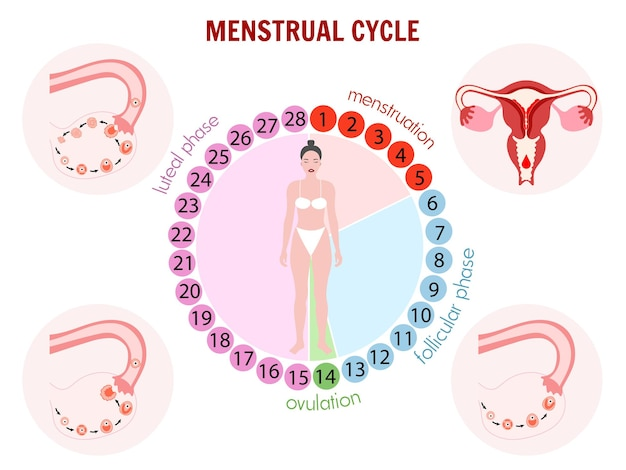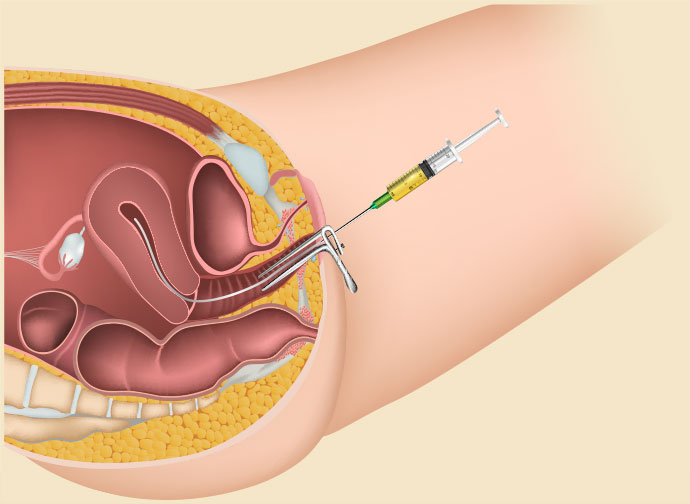
18 Aug IUI vs. IVF: Which Fertility Treatment Is Right for You?
IUI vs. IVF: Which Fertility Treatment Is Right for You?
By Island Hospital | August 18, 2025 10:34:09 AM
Struggling to conceive can be one of the most emotionally challenging and overwhelming journeys for a couple. As months turn into years without a positive result, it’s normal to feel frustrated, sad, or even isolated. If you find yourself in this situation, it’s essential to know parenthood is still possible beyond trying naturally.
Today, couples who once thought having children was out of reach have more options than ever. Fertility treatments like Intrauterine Insemination (IUI) and In Vitro Fertilisation (IVF) have renewed hope for millions seeking to start or expand their families.
While both are designed to improve the chances of conception, they each have their own unique processes, benefits, and considerations, depending on individual infertility factors.
If you are exploring fertility alternatives, continue reading. In this guide, we’ll walk you through the distinctions between IUI and IVF, provide in-depth reasoning to help you determine which treatment aligns with your unique situation, and address common concerns.
Whether you are at the beginning of your fertility journey or ready to move forward, this guide will equip you with the knowledge and confidence to take your next steps.
Understanding Infertility: When to Consider Treatment
Infertility is defined as the inability to conceive or achieve pregnancy after a year of regular, unprotected intercourse. It can affect both men and women and may be caused by hormonal imbalances, ovulation disorders, sperm abnormalities, structural issues in the reproductive system, or unexplained factors.
When Should You Seek Professional Help?
You should consider seeking a professional or specialist if:
- You’re under 35 and have been trying to conceive for over a year without success.
- You’re 35 or older and have been trying to conceive for six months without success.
- You are 40 years old or older and are just beginning to try to conceive, or even before starting, due to the natural and more rapid decline in fertility at this age.
- You or your partner has known risk factors or medical conditions
that could impact fertility, regardless of how long you’ve been trying. These include:- For women: Known reproductive issues, such as polycystic ovary syndrome (PCOS), endometriosis, irregular menstrual cycles, or a history of pelvic infections or surgery.
- For men: A history of low sperm count or other fertility concerns such as erectile or ejaculatory dysfunction, undescended testicles, or previous mumps after puberty.
- For both partners: A history of cancer treatment (chemotherapy/radiation), chronic health conditions (e.g., diabetes, autoimmune disorders), or concerns about significant lifestyle factors or environmental toxin exposure.
What is Intrauterine Insemination (IUI)?
Intrauterine insemination (IUI), often referred to as artificial insemination, is a common and relatively less invasive fertility treatment. In IUI, specially prepared and concentrated sperm are placed directly into a woman’s uterus, bypassing the cervix.

The procedure is carefully timed to coincide with ovulation—the point in the menstrual cycle when an egg is released from the ovary. IUI is designed to increase the chances of pregnancy by helping healthy sperm reach and fertilise the egg, especially in cases of mild male infertility or unexplained infertility.
How Does IUI Work?

The core idea behind IUI is to give healthy sperm a head start by placing them closer to the egg, increasing the chances of fertilisation. Instead of sperm needing to navigate through the cervix and across the entire uterine cavity, IUI deposits them directly into the uterus, closer to the fallopian tubes where fertilisation occurs.
Step-by-Step IUI Process
Understanding each stage of the IUI process can help you feel more prepared and confident. Below is a brief overview of the key steps involved in the IUI process:
- Ovulation Monitoring: Your cycle is closely tracked using ultrasound scans and blood tests to identify when your eggs are mature or when ovulation is about to occur. Fertility medications might be used to stimulate egg production.
- Sperm Collection and Washing: On the day of the IUI, a fresh semen sample is collected from your partner (or thawed from a donor). This sample then undergoes a lab process called a “sperm wash.” This separates the most active and healthy sperm from other fluid and debris.
- Insemination: A thin, flexible tube (catheter) is gently passed through your cervix and into your uterus. The sperm sample is then slowly and directly injected into the uterus. The procedure is typically quick and causes minimal discomfort.
- Post-Procedure: You might be asked to rest briefly. Most women resume normal activities right away. A pregnancy test is scheduled for about two weeks later.
Who is IUI For?
IUI may be suitable if you:
- Have unexplained infertility
- Have mild male factor infertility, such as low sperm count or motility
- Experience cervical mucus issues
- Need donor sperm
- Have ovulation disorders that respond to medication
- Semen allergy
- Mild Endometriosis
- Are under age 35 with good ovarian reserve
Advantages of IUI
IUI offers several benefits that make it an appealing first-line fertility treatment for many couples:
- Less invasive than IVF
- More affordable per cycle
- Minimal discomfort
- Simpler process
- More natural, as fertilisation still happens inside the body
Disadvantages of IUI
However, it’s important to be aware of the potential disadvantages and risks associated with IUI:
- Lower success rates compared to IVF
- Not effective for severe male infertility or blocked fallopian tubes
- Risks include infection, spotting, and a small chance of multiples with fertility medications
Success Rates
IUI success rates vary widely, typically ranging from 5% to 20% per cycle, depending on several factors. It’s often recommended to try 3-6 cycles before considering other options.
Factors Influencing IUI Success:
- Female age
- Cause of infertility
- Sperm quality
- Use of fertility medications
- Number of follicles
What to Expect and Avoid After Treatment
After your IUI procedure, it’s common to feel anxious. Here’s what to keep in mind:
What to Expect:
- Mild cramping, bloating, vaginal discharge or light spotting may occur and typically resolve within one to two days.
- Most women can return to normal daily activities right away.
- Focus on relaxation, eating a balanced diet, and managing stress during the two-week wait before taking a pregnancy test.
- Possible pregnancy-like symptoms may occur, often due to hormonal changes from ovulation or fertility medications.
- Emotional ups and downs are common during this period; seek support if needed and follow your fertility specialist’s guidance.
What to Avoid:
- Steer clear of hot baths, saunas, or jacuzzis, as excessive heat may interfere with implantation.
- Avoid over-analysing symptoms, which can increase stress.
- Refrain from intense exercise or heavy lifting for 24 to 48 hours after the procedure.
- Avoid using tampons for 24-48 hours to reduce the risk of minor infection.
Curious about menstrual health and cycle irregularities? Explore our in-depth guide on why your period might be late, common causes, and when to seek help.
What is In Vitro Fertilisation (IVF)?
In Vitro Fertilisation, or IVF, is an advanced and effective type of Assisted Reproductive Technology (ART) used to help individuals and couples conceive when other fertility treatments have been unsuccessful or are not suitable.
It’s a complex series of procedures used to help with fertility or prevent genetic problems and assist with the conception of a child. In vitro literally means “in glass,” referring to the process of fertilisation taking place outside the body, in a laboratory dish.
How Does IVF Work?

Unlike IUI, where fertilisation occurs inside the body, IVF involves retrieving mature eggs from a woman’s ovaries and fertilising them with sperm in a specialised laboratory. Once fertilisation occurs, the resulting embryos are carefully monitored, and the healthiest embryo is selected for transfer back into the woman’s uterus to establish a pregnancy.
Step-by-Step IVF Process
IVF is a multi-step process that typically takes several weeks for one full cycle:
- Ovarian Stimulation: Fertility medications are given to stimulate the ovaries to produce multiple mature eggs, rather than the single egg normally produced each month. This increases the chances of having more embryos available for selection.
- Monitoring: Regular ultrasound scans and blood tests are done to track follicle growth and hormone levels.
- Egg Retrieval: Once the eggs are mature, a minor surgical procedure is performed. Under sedation, a thin needle is guided through the vagina into the ovaries to aspirate (gently suction out) the fluid and eggs from the follicles.
- Sperm Collection: On the same day as egg retrieval, a fresh semen sample is collected from the male partner (or a thawed donor sperm sample is used).
- Fertilisation: In the lab, the retrieved eggs are combined with the prepared sperm in a special culture dish — this is a traditional form of IVF. Alternatively, Intracytoplasmic Sperm Injection (ICSI) may be used, where a single sperm is injected directly into each egg, especially if there’s severe male factor infertility or previous fertilisation failure.
- Embryo Culture: The fertilised embryos are monitored in the lab for several days (typically 3 to 5 days) as they divide and develop.
- Embryo Transfer: One or more selected embryos are transferred into the woman’s uterus using a thin catheter, similar to the IUI procedure.
- Pregnancy Test: A pregnancy test is typically performed about two weeks after embryo transfer to confirm if implantation was successful.
Who is IVF For?
IVF may be an appropriate treatment option if you or your partner has:
- Blocked or damaged fallopian tubes
- Severe male factor infertility
- Severe endometriosis
- Ovulation disorders
- Premature ovarian failure
- Uterine fibroids
- Failed IUI cycles
- Genetic concerns
- Fertility preservation
Advantages of IVF
IVF offers several important benefits that make it a highly effective option for many individuals and couples struggling with infertility:
- Higher success rates
- Overcome many infertility causes
- Genetic testing
- Fertility preservation
Disadvantages of IVF
However, it’s important to understand the potential disadvantages and risks associated with IVF before deciding if it’s the right treatment for you:
- Invasive and Intensive
- Emotional and physical strain due to hormonal treatments and the uncertainty of outcomes
- Higher cost compared to IUI
- Risks of complications include ovarian hyperstimulation syndrome (OHSS), Ectopic Pregnancy, and multiple pregnancies if more than one embryo is transferred.
- Time-Consuming
Success Rates
IVF success rates vary greatly depending on numerous factors. Globally, live birth rates per IVF cycle can range from around 30-45% for women under 35, declining significantly with age, with often below 10% for women over 42.
Factors Influencing IVF Success:
- Female Age
- Cause of Infertility
- Ovarian Reserve
- Sperm Quality
- Embryo Quality
- Number of Embryos Transferred
- Previous Pregnancy History
- Lifestyle Factors
What to Expect and Avoid After Treatment
The period after embryo transfer in IVF is often referred to as the “two-week wait” and can be emotionally intense.
What to Expect:
- Mild cramping, bloating, vaginal discharge or spotting may occur after embryo transfer.
- Most women can resume light daily activities immediately.
- You may experience emotional ups and downs during the two-week wait for your pregnancy test results.
- Possible pregnancy-like symptoms (e.g., breast tenderness, fatigue) may result from hormonal medications.
- Bloating and breast tenderness are common due to hormonal changes.
What to Avoid:
- Avoid vigorous exercise or heavy lifting for a few days after the transfer.
- Steer clear of hot baths, saunas, or jacuzzis, as excessive heat may affect implantation.
- Avoid smoking, alcohol, and unnecessary medications unless approved by your doctor.
- Try not to over-analyse symptoms, as they may be caused by hormones rather than pregnancy.
IUI vs. IVF: A Side-by-Side Comparison
To help you decide which treatment may suit your needs, here’s a brief side-by-side comparison of the key differences between IUI and IVF:
| Feature | IUI | IVF |
|---|---|---|
| Procedure | Sperm is placed directly in the uterus | Eggs and sperm are combined outside the body; the embryo is transferred into the uterus |
| Invasiveness | Minimally invasive | More invasive (requires egg retrieval surgery) |
| Cost | Lower per cycle | Significantly higher per cycle |
| Success Rates | ~10–20% per cycle (under 35) | ~40–50% per cycle (under 35), decreases with age |
| Ideal Candidates | Mild male infertility, unexplained infertility, cervical factor issues | Blocked tubes, severe male infertility, failed IUI, advanced maternal age, genetic concerns |
| Medication | Often uses ovulation-stimulating drugs | Requires intensive hormonal stimulation |
| Time to Pregnancy | May need multiple cycles, slower path | Often faster results for certain infertility causes |
| Risks | Low; infection, multiples with meds | Higher; OHSS, multiple pregnancies, emotional strain |
Choosing the Right Path for You: Factors Influencing Your Decision
Even after learning about the differences between IUI and IVF, you may still feel unsure about which treatment best suits you and your unique circumstances. Making this decision isn’t always straightforward, and that’s perfectly normal. However, considering several important factors can help guide you and your fertility specialist toward the right choice:
1. Medical Diagnosis and Cause of Infertility
This is often the most significant determining factor. The specific reasons identified for your infertility will heavily guide the recommended treatment.
- Mild male factor infertility or cervical factor: IUI might be a suitable first step.
- Blocked fallopian tubes, severe male factor, or advanced endometriosis: IVF is almost certainly the primary recommendation, as it directly addresses these issues by bypassing damaged tubes or allowing for advanced sperm handling (like ICSI).
- Ovulatory disorders: Often addressed first with ovulation-inducing medications, which can be combined with IUI. If these fail, IVF may be considered.
- Unexplained infertility: After initial assessments find no clear cause, simpler treatments like IUI are often tried first, followed by IVF if needed.
2. Age
Age plays a critical role, particularly the woman’s age, due to its impact on egg quality and quantity (ovarian reserve).
- Younger women (Under 35): May start with less invasive and less expensive options like IUI, especially if there are no severe underlying issues. The chances of success with IUI are generally higher in this age group.
- Older women (35 and Above): Due to the accelerated decline in egg quality and quantity, a fertility specialist might recommend moving more quickly to IVF, which offers higher per-cycle success rates and allows for a more direct assessment of egg and embryo quality.
3. Ovarian Reserve and Sperm Quality
These factors directly relate to the potential success of different treatments.
- Good ovarian reserve and healthy sperm: If both partners have good fertility parameters, IUI may be considered a less aggressive starting point.
- Diminished Ovarian Reserve (DOR): If a woman’s egg supply is low, IVF often becomes the preferred choice as it aims to retrieve as many eggs as possible in one cycle, maximising the chances.
- Poor sperm quality: For severe male factor infertility (very low count, motility, or morphology), IVF with ICSI (Intracytoplasmic Sperm Injection) is usually necessary to achieve fertilisation.
4. Financial Considerations
Fertility treatments can be expensive, and financial constraints often play a significant role in the decision-making process.
- Cost-effectiveness: IUI is significantly less expensive per cycle than IVF. Couples often start with IUI as it’s a more financially accessible option.
- Cumulative costs: While IVF is more expensive per cycle, it may lead to pregnancy faster for certain conditions, potentially saving overall costs if multiple failed IUI cycles are avoided.
5. Personal Preferences and Comfort Level
Beyond the medical and financial aspects, your personal comfort with the invasiveness, time commitment, and emotional toll of each treatment is vital.
- Invasiveness: Some individuals prefer to start with less invasive options like IUI. Others may want to go straight to the most effective treatment available, even if it’s more intensive.
- Time commitment: IVF involves more injections, monitoring appointments, and procedures compared to IUI.
- Emotional readiness: The emotional journey of fertility treatment is significant. Your readiness to embark on a more intensive path like IVF versus a gentler approach like IUI should be discussed openly.
6. Number of Previous Attempts
Your history of attempting conception, both naturally and through previous treatments, will influence future recommendations.
- Failed IUI cycles: If a couple has undergone several unsuccessful IUI cycles (typically 3-6, depending on age and other factors), a fertility specialist will often recommend moving on to IVF, as the chances of IUI success typically do not increase with more attempts beyond a certain point.
- Prior pregnancies or losses: A history of previous successful pregnancies (even if secondary infertility is now an issue) or recurrent miscarriages will inform the diagnostic and treatment approach.
7. The Role of Your Fertility Specialist
Ultimately, the decision between IUI and IVF should always be made collaboratively with your fertility specialist. Your fertility specialist will:
- Provide a thorough diagnosis
- Outline all viable options
- Consider your unique circumstances
- Answer all your questions
Want to learn more about ovarian health? Read our comprehensive guide on ovarian cysts, their symptoms, treatment options, and when to seek medical advice.
Beyond the Procedures: Holistic Support for Your Journey

Undergoing fertility treatment is more than just a series of medical procedures. It’s an emotional and profound journey that can impact every aspect of your life, not just physically, but also emotionally, financially, and socially. Providing holistic support can help you navigate this challenging time with resilience, clarity, and confidence.
1. The Emotional and Psychological Impact
It’s natural to experience a rollercoaster of emotions during fertility treatment, including stress, anxiety, grief, and moments of hope. These feelings can stem from the diagnosis itself, the uncertainty of treatment outcomes, the physical demands of procedures, the financial burden, and the societal pressures to conceive.
Amidst these challenges, prioritising your mental wellness is crucial for your overall health and treatment success.
Strategies for Coping:
- Open communication: Talk openly and honestly with your partner, family, or trusted friends about your feelings to lighten the burden.
- Professional counselling: Consider seeking support from a counsellor or psychologist specialising in fertility. They can provide tools for coping, managing stress, and navigating relationship challenges.
- Support groups: Connecting with others who are going through similar experiences can be incredibly validating and help reduce feelings of isolation.
- Mindfulness and relaxation: Practices such as meditation, deep breathing exercises, yoga, or gentle walks can help manage stress and promote a sense of calm.
- Set boundaries: Don’t feel obligated to share your journey with everyone, and protect yourself from insensitive comments.
- Allow for grief: It’s okay to grieve for the loss of natural conception or unsuccessful cycles. This is a normal part of the process.
2. Financial Planning for Fertility Treatment
Fertility treatments can be a significant financial investment in Malaysia. Costs can include:
- Consultations
- Diagnostic tests
- Medications
- Laboratory procedures
- Embryo or egg freezing and storage
- Follow-up appointments
With IVF often requiring higher upfront expenses than IUI, it’s important to plan your budget and discuss expected costs with your clinic. Explore options like insurance coverage, employer benefits, or financial assistance programs.
In Malaysia, resources such as the KWSP Account 2 withdrawal scheme for fertility treatments, initiatives listed on Starting a Family Malaysia, or government programs like the RM6 million fertility treatment fund for 1,300 couples may offer additional support. Don’t hesitate to ask your fertility centre about payment plans or financial counselling.
3. Preparing Your Body and Mind for Treatment
Optimising your health before and during treatment can improve your chances of success and overall well-being throughout the process
- Balanced diet: Focus on a nutrient-rich diet with plenty of fruits, vegetables, whole grains, and lean proteins.
- Healthy weight: Maintain a healthy Body Mass Index (BMI). Being significantly overweight or underweight can impact fertility.
- Regular exercise: Engage in moderate, regular physical activity.
- Avoid harmful substances: Abstain from smoking, excessive alcohol consumption, and illicit drugs. These can significantly impair both male and female fertility and pregnancy outcomes.
- Caffeine intake: Moderate caffeine intake is generally advised.
- Supplements: Discuss any vitamins or supplements with your doctor, especially folic acid for women, which is crucial for preventing neural tube defects.
Beyond formal counselling, integrate daily stress-reducing activities:
- Hobbies: Engage in activities you enjoy that provide a sense of relaxation and distraction.
- Mindfulness and meditation: Apps and guided meditations can be very helpful.
- Nature walks: Spending time outdoors can be restorative.
- Adequate sleep: Prioritise 7-9 hours of quality sleep each night.
Remember that fertility is a shared journey. Both partners should commit to a healthy lifestyle. This includes managing chronic conditions like diabetes or hypertension, addressing any existing health issues, and undergoing recommended pre-treatment screenings.
4. What if Treatment Doesn’t Work? Exploring Alternative Paths
Despite best efforts, fertility treatments don’t always result in pregnancy, and experiencing an unsuccessful cycle can be heartbreaking. It’s crucial to have strategies for coping with this possibility and to be aware of other family-building avenues.
- Give yourself time to process your emotions.
- Debrief with your doctor.
- Take a break.
- Lean on support systems.
- Focus on self-care.
Don’t hesitate to seek support or professional counselling if you need help coping. Your fertility specialist will guide you through the next steps.
- Additional cycles.
- Donor gametes (donor eggs, sperm or embryos)
- Adoption
- Acknowledging and validating the path of choosing to be child-free
Why Choose Island Hospital’s Fertility Centre for Your Journey
When you’re navigating the challenges of infertility, choosing the right fertility centre can make all the difference in your journey to parenthood. At Island Hospital’s Fertility Centre, we provide personalised, comprehensive care backed by decades of expertise in Assisted Reproductive Technologies (ART).
Using proven treatments like IUI and IVF, we offer advanced protocols and individually tailored plans designed to maximise your chances of success.
Whether you need detailed diagnostics, medical therapy, or advanced procedures, our state-of-the-art laboratory technology and cutting-edge equipment ensure every step is performed with precision and the highest standards of safety.
At Island Hospital, we’re committed to guiding you with expertise, empathy, and the latest fertility care, giving you the best chance to make your dream of becoming a parent a reality.
Check out our list of Island Hospital specialists and book your consultation today!
Take the First Step on Your Path to Parenthood!
Choosing between IUI and IVF can feel overwhelming, but you don’t have to make this decision alone.
At Island Hospital, our experienced team is here to guide you every step of the way, offering personalised care and the latest reproductive technologies to help you achieve your dream of parenthood.
Whether you’re just beginning to explore fertility treatments or ready to take the next step, we’re here to provide the expertise, support and hope you deserve.
Let us guide you on your journey to parenthood — schedule your consultation today!
FAQs
1. Is IVF Too Invasive?
While IVF does involve an egg retrieval procedure, it’s typically a quick 10–20-minute outpatient surgery performed under light sedation. Most women experience only mild cramping afterwards and can resume normal activities within a day, with full recovery expected in a few days.
2. Will IUI Lead to Twins or Multiples?
While using fertility medications with IUI can slightly increase the risk of twins or multiples, careful monitoring by your fertility specialist helps keep this risk low. Regular ultrasounds and hormone checks allow your doctor to adjust medication doses to minimise the chance of releasing too many eggs.
3. How Can I Prepare For My Fertility Appointment?
Gather a detailed medical history for both you and your partner, including past pregnancies, surgeries, menstrual or reproductive issues, and any family history of infertility or genetic conditions.
Bring a list of all medications, supplements, and vitamins you’re taking. Prepare a list of questions or concerns to discuss with your specialist. If an exam or ultrasound is planned, wear comfortable, easy-to-remove clothing to make the process smoother.
4. How Soon After IUI or IVF Can I Take a Pregnancy Test?
It’s best to wait around 14 days after an IUI or embryo transfer before taking a pregnancy test. Testing earlier can lead to false negatives because the pregnancy hormone (hCG) may not yet be at detectable levels.
Additionally, testing too soon after IVF can give false positives if fertility medications containing hCG are still in your system. Following your fertility specialist’s recommended testing timeline will provide the most accurate results.
5. Is IUI and IVF Haram in Islam?
According to many Islamic scholars, IUI and IVF are halal if they involve only the married husband and wife’s sperm and eggs, and no third-party donors or surrogates. This ensures the child’s lineage remains clear and preserves family integrity, which is central in Islamic teachings.
However, using donor sperm, donor eggs, or surrogacy is widely considered haram. Because opinions can vary, it’s recommended to consult a knowledgeable religious authority or imam for personal guidance based on your specific situation.
6. How Does Sleeping Position Affect the Aftercare Treatment?
Your sleeping position doesn’t directly affect whether IUI or IVF succeeds, but lying comfortably can help you relax and reduce stress during the critical two-week wait.
Some specialists recommend resting on your back with a pillow under your hips for 15–30 minutes immediately after the procedure, which may help sperm stay closer to the uterus during IUI.
After that, sleeping on your left side can improve blood flow to your uterus and promote overall comfort. Avoid sleeping on your stomach, as it can put unnecessary pressure on your abdomen and cause discomfort.
7. Can I Choose the Gender of My Baby via IVF or IUI?
With IVF, it is technically possible to select your baby’s gender through a process called Preimplantation Genetic Testing (PGT), which can identify the sex of embryos before transfer.
However, in Malaysia, using IVF for non-medical gender selection (personal or family preference) is generally not allowed and is considered unethical. Gender selection may only be permitted in specific medical cases, such as preventing serious sex-linked genetic disorders.
In contrast, IUI does not allow for gender selection, as fertilisation happens inside the body and there is no way to determine or choose the sex of the embryo.






